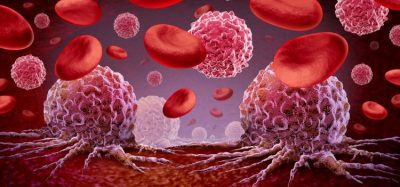First patients dosed in Bekinda IBS-D trial
Posted: 22 June 2016 | | No comments yet
The first patients have been dosed in a Phase II clinical study with RedHill Biopharma’s Bekinda 12 mg for diarrhoea-predominant irritable bowel syndrome…


The first patients have been dosed in a Phase II clinical study with RedHill Biopharma’s Bekinda 12 mg for diarrhoea-predominant irritable bowel syndrome (IBS-D).


The Phase II trial is expected to enrol 120 subjects in 12 clinical sites in the US and is intended to evaluate the safety and efficacy of Bekinda 12 mg in patients with IBS-D. Subjects enrolled in the Phase II study will be randomised 60:40 to receive either Bekinda 12 mg or a placebo, once daily, for a period of eight weeks. The primary endpoint for the study is the proportion of patients in each treatment group with response in stool consistency as compared to baseline, per FDA guidance definition. Secondary endpoints include the proportion of patients in each treatment group who are pain responders and the proportion of patients in each treatment group who are responders to the combined endpoints of stool consistency and pain, per FDA guidance definition.
Ondansetron is the active ingredient in Bekinda
Bekinda is a proprietary, extended-release, once-daily oral pill formulation of the antiemetic drug ondansetron, targeting multiple gastrointestinal indications. RedHill is pursuing clinical studies with two dose strengths of Bekinda, a 24 mg dose and a 12 mg dose, for two different indications. A Phase III study of Bekinda 24 mg for acute gastroenteritis and gastritis is ongoing in the US (the GUARD study), with top-line results expected in late 2016.
5-HT3 antagonists such as ondansetron have been shown to slow intestinal transit time in humans. Alosetron (Lotronex), a 5-HT3 antagonist of the same class of drugs as ondansetron, has been approved for the treatment of women with severe chronic IBS-D but is under a restricted prescribing (REMS) programme due to potential severe side effects. Ondansetron, approved by the US FDA as an oncology support antiemetic, has demonstrated activity in IBS-D in preliminary studies and, in light of its good safety profile, RedHill believes that Bekinda, if approved, has the potential to be a preferred once-daily treatment for a broad segment of patients suffering from IBS-D.









